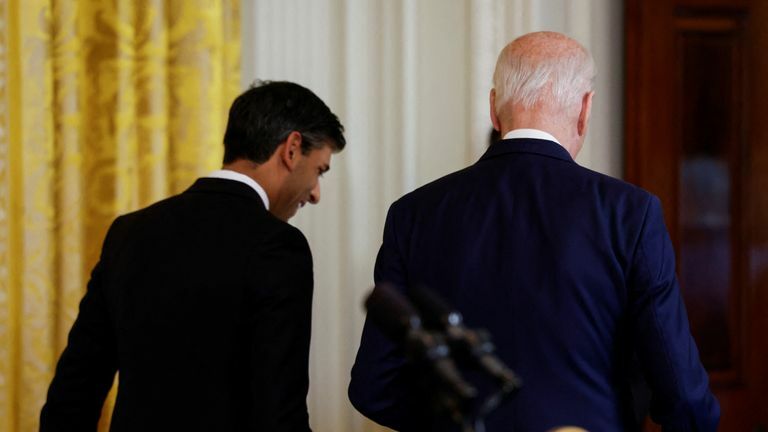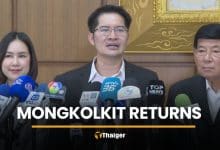UK hosts global AI summit, deepens economic ties with US

The Prime Minister returns from Washington having made progress on two key objectives: fostering global cooperation on artificial intelligence (AI) risks and strengthening economic ties with the UK’s largest trading partner. The announcement of the first global AI summit in London is viewed as a victory, as it marks the beginning of a larger effort to establish a global AI regulatory body in the UK.
In a news conference, US President Joe Biden expressed confidence in the UK’s ability to help navigate the challenges of AI regulation, stating, “We’re looking to Great Britain to help me in that effort to figure out a way through [the handling of AI]. So we’re in full cooperation. Because there’s no one country we have greater faith in being able to negotiate this. We’re in lockstep.” This endorsement is particularly significant for the UK, which has been excluded from negotiations between the EU and the US on regulatory frameworks.
The Prime Minister is passionate about AI and believes it is an area where the UK can assert its leadership. In a post-Brexit world, the UK is seeking to demonstrate its agility and ability to take the lead on global issues, such as Ukraine and AI regulation. President Biden’s remarks at the news conference suggest that he may be receptive to the UK’s efforts to position itself as a global leader in AI regulation.
The relationship between the UK and the US has improved significantly during the Prime Minister’s tenure. Following a 40-minute one-on-one meeting and a 30-minute bilateral discussion with advisers, insiders from No 10 report that they were pleasantly surprised by President Biden’s warm language. There is a sense that the Prime Minister was successful in conveying the UK’s ambition to be a leader in AI regulation.
However, despite the strengthening of the special relationship between the two nations, the much-anticipated free trade deal has yet to materialise. The Prime Minister has previously stated that he prioritises the quality of trade deals over their speed, and the US-UK deal is set to be revisited in 2025. However, the absence of a trade deal by the end of 2022 represents a broken promise by the Conservative government.
When questioned about this failure to deliver on an election pledge, the Prime Minister cited the evolving macroeconomic situation, including the pandemic and the war in Ukraine, and emphasised the continued strength of the UK-US economic partnership. He argued that the focus should be on ensuring economic security for both countries’ citizens.
Despite the lack of a trade deal, the special relationship appears to be in good shape. The Atlantic Declaration, which outlines future cooperation on AI, key supply chains, and defence manufacturing, is a positive outcome. The special relationship between not just the US, but the UK on a wider global stage, is looking healthier than it has been for several years.
While this may not directly translate into votes for the Prime Minister in the next general election, he is perceived as a leader who is making the right decisions for the UK’s post-Brexit relevance and prosperity. Although he continues to struggle in the polls, the Prime Minister is gaining recognition on the world stage.
Latest Thailand News
Follow The Thaiger on Google News:


























